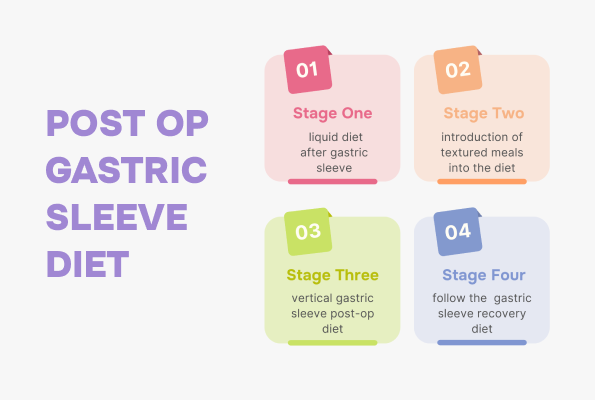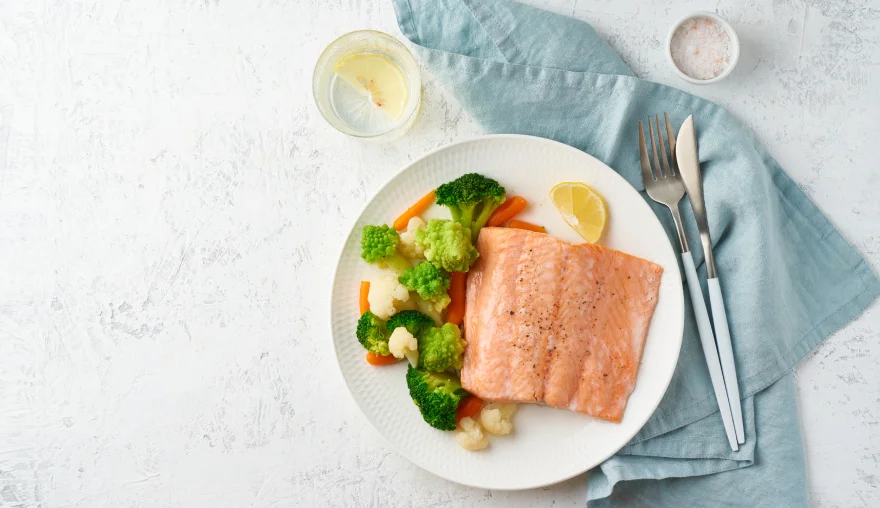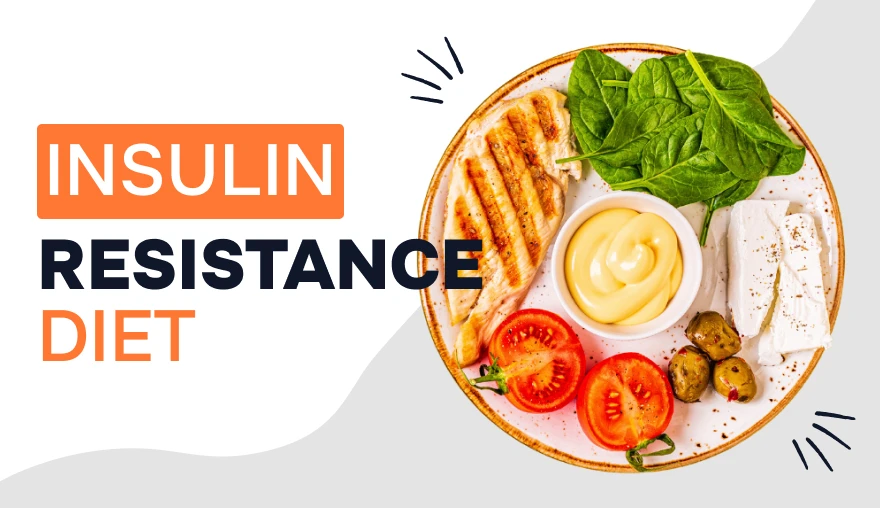Sleeve gastrectomy is one of the most common bariatric surgeries. According to statistics, it allows getting rid of 60-80% of excess weight in two years and managing healthy weight in the future. Besides, banded gastroplasty shows a pronounced antidiabetic effect for type 2 diabetes. But one should remember that a positive impact depends on following a proper diet. A good gastric sleeve surgery diet and the correct preparation for the surgery are two main components of success on the road to a slim body and good health.
Pre-op diet for gastric sleeve
Pre-surgery diet for the gastric sleeve is compulsory for the surgery. Being a serious surgical procedure, sleeve gastrectomy requires thorough preparation. Patients cleared for surgery have an enlarged liver and visceral body fat. The extra volume makes the operation difficult to perform because the liver is located close to the stomach.
A gastric sleeve preparation diet is aimed at reducing the size of the liver and fatty deposits in the abdominal cavity and must be compiled by a nutritionist or your doctor. You may need to start this diet right after receiving admission to surgery. Take your diet seriously, and remember that the surgery can be postponed, if the diet doesn’t give the required result.
What is the pre-op diet for the gastric sleeve? Food should contain a lot of protein and a minimum of fat and carbohydrates. Also, you should control portion size. At the beginning of the diet, you are allowed to eat:
- chicken fillet
- lean turkey
- low-fat fish (tuna, salmon)
- Greek yogurt
- ricotta cheese
- eggs
During the last three days before the surgery, you should follow a liquid diet for gastric sleeve, which includes:
- protein shakes
- broth
- jello
- decaffeinated tea and coffee
Post-op gastric sleeve diet
There is no doubt that the best diet for gastric sleeve patients is the diet for the rest of their lives. It is important to understand that longitudinal gastrectomy changes your diet, and this process is irreversible. It may be challenging for your self-discipline, so you should be ready.
The diet implies the consumption of a low amount of carbs and fats, so a balanced nutrition, including foods high in protein, is preferable! However, it doesn’t mean that you should follow the same diet you had after the surgery during a year. Please remember that after gastrectomy, the stomach becomes about 10 times smaller, and a fresh scar takes time to heal.
In the first weeks after surgery, there is a high risk of early postoperative complications, including:
- peritonitis
- internal hemorrhaging
- gastrointestinal fistula
- thrombosis
- inflammatory process
Subscribe to our blog
Get the latest insights.
The first weeks of the diet must be strict to prevent these complications. The diet can be divided into four stages:
Stage 1
Your diet at the first stage after the surgery will be similar to the diet before the surgery. You need to follow a liquid diet after gastric sleeve, which contributes to better healing of the postoperative scars and preventing possible complications. Smaller portions won’t let your stomach stretch. You can consume the following foods:
- broth
- sugar-free jello
- sugar-free juices
- decaffeinated tea and coffee
- sorbet without sugar
Please remember that fizzy liquids are forbidden at this stage because they may cause bloating.
Stage 2
The next gastric sleeve post-op diet stage allows for the introduction of textured meals into the diet. However, these meals should have a delicate texture and contain a high percentage of water! For example, you can make puree from vegetables and fruit. You should avoid vegetables high in fiber, including broccoli or other varieties of cabbage.
Perfect choices for you are:
- applesauce
- bananas
- pears
- peach
- pureed carrots
- spinach
- pumpkin
- cottage cheese
- protein yogurt
- beef
- chicken
- baby foods
You can use a blender to puree fresh or cooked foods. Also, avoid spicy food or try seasoning carefully because it may upset your stomach.
You still can’t drink carbonated drinks because your stomach is not stretched enough, and you should avoid sugar. Also, it is forbidden to wash down food without chewing it; each bite you take should be chewed at least 25 times.

Stage 3
No rush is the main principle of your vertical gastric sleeve post-op diet. Of course, it is important for all stages, but the third one allows introducing more textured food. You can move to this stage only if your doctor decides that you are ready because haste leads to postoperative complications.
Meals should be soft and portions – small. It is recommended not to introduce two new products in one day, so that you can track your stomach’s reactions.
At this stage, it is important to introduce into your diet the following foods:
- canned fruit
- soft vegetables (boiled or steamed)
- steamed or baked white fish
- ground beef or minced chicken
- mashed potatoes
- soft-boiled egg
- soft noodles
We recommend not to use too much seasoning at the third stage. Also, we highly encourage avoiding sugar, cellulose-rich vegetables, bread, and cereals.
Stage 4
At this stage, your gastric sleeve recovery diet slowly transforms into your usual diet. It is assumed that this stage shapes healthy eating habits for the rest of your life.
This stage is really challenging because many patients remember their old habits of an unhealthy diet while limitations are kept to the minimum. However, some rules still should be preserved, including:
- eating 4-6 times a day in small portions
- thorough chewing of food
- eating only if you are hungry
- drinking not less than 1.5l of water per day
- cutting out high-carbohydrate snacks (snacks, chips, seeds, popcorn, etc.)
- the gap between food intake and drinking water
- focus on high-protein foods
- avoiding fried foods, sweets, and sodas
These habits are expected to stay with you for the rest of your life. Your ability to follow this diet after gastric sleeve operation and eating balanced food for many years is the key to an excellent result of gastrectomy!

Relevant article
What is FODMAP Diet, and When is It Necessary?Conclusion
Sleeve gastrectomy has grown in popularity. Nowadays, 40% of all bariatric surgery in most health clinics belong to this type of surgery. Many people see it as a magic tool that can change their life in one day. However, reality shows that the effect of sleeve gastrectomy is achieved with long and hard work.
About 4-6 months after the surgery, you will be able to increase portions slightly and eat sweets from time to time, but generally, recommendations of the fourth stage remain relevant.
It means that surgery alone is not enough; you need the perseverance to change your eating habits radically. Thus, the decision to undergo surgery must be prudent and informed only if you are 100% sure of your wish, especially because bariatric surgeries have a number of negative consequences for the body, such as a chronic deficiency of protein, vitamins and iron.

“Hayley Liew has credentials as both a Provisional Psychologist and a Practicing Dietitian ”




